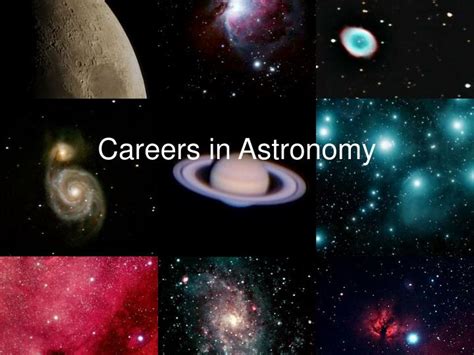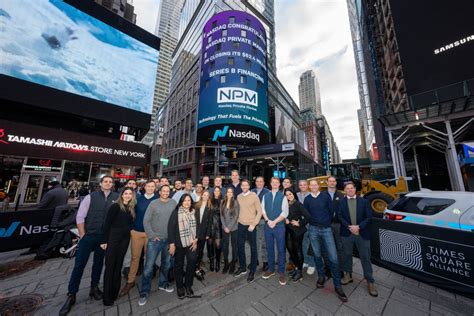Planetarium Careers

The allure of the cosmos has captivated humanity for centuries, inspiring countless individuals to pursue careers that delve into the mysteries of the universe. Planetariums, with their immersive experiences and educational value, have become vital institutions for promoting space exploration and astronomy. A career in planetariums offers a unique opportunity to combine a passion for science with the art of storytelling, making complex astronomical concepts accessible and engaging for audiences of all ages.
In this comprehensive guide, we will explore the diverse career paths within the planetarium industry, shedding light on the skills, education, and experiences required to succeed in this fascinating field. From astronomy experts to multimedia designers, each role plays a crucial part in crafting the extraordinary planetarium experience.
The Heart of the Matter: Planetarium Astronomers

At the core of every planetarium lies the astronomer, an expert in the field of astronomy and astrophysics. These individuals are the backbone of the institution, responsible for curating and delivering accurate and engaging presentations. Their deep understanding of celestial objects, space phenomena, and scientific discoveries forms the basis of the planetarium’s educational content.
A planetarium astronomer typically possesses a strong academic background, often holding advanced degrees in astronomy, astrophysics, or a related field. Their expertise allows them to translate complex scientific concepts into accessible and captivating narratives, ensuring that the planetarium's shows are both educational and entertaining.
Beyond their scientific knowledge, astronomers in planetariums must also possess excellent communication skills. They are the primary narrators of the planetarium's shows, guiding audiences through the wonders of the universe with clarity and enthusiasm. The ability to connect with diverse audiences, from schoolchildren to adult enthusiasts, is a key skill for astronomers in this setting.
The Art of Presentation: Essential Skills for Planetarium Astronomers
- Scientific Expertise: A deep understanding of astronomy, astrophysics, and related fields is fundamental. This includes knowledge of celestial objects, space phenomena, and the latest scientific discoveries.
- Communication Skills: The ability to explain complex concepts in simple terms is crucial. Astronomers must engage and educate audiences of all ages and backgrounds.
- Storytelling: Crafting compelling narratives that captivate audiences and bring the wonders of the universe to life is an art. Astronomers must possess a flair for storytelling to make their presentations memorable.
- Technical Proficiency: Familiarity with planetarium software and equipment is essential. Astronomers often create and edit shows, requiring technical skills in operating and maintaining planetarium systems.
Planetarium astronomers play a pivotal role in shaping the institution's reputation and impact. Their expertise and passion for astronomy drive the creation of captivating shows, ensuring that planetariums remain a powerful tool for inspiring the next generation of scientists and space enthusiasts.
| Role | Description |
|---|---|
| Planetarium Astronomer | Experts in astronomy who curate and present educational shows, translating complex scientific concepts into engaging narratives. |
| Multimedia Designer | Creative professionals who design and produce visual content for planetarium shows, including 3D animations, graphics, and special effects. |
| Planetarium Technician | Technical specialists who maintain and operate planetarium equipment, ensuring smooth show presentations and optimal audience experiences. |

Creative Forces: Planetarium Multimedia Designers

Planetariums are not just about scientific accuracy; they are also a feast for the eyes. The stunning visuals and multimedia elements that bring the universe to life are the work of talented multimedia designers. These creative professionals play a crucial role in crafting the immersive experiences that make planetariums so captivating.
Multimedia designers in planetariums are responsible for creating the visual content that accompanies astronomical presentations. This includes designing and producing 3D animations, graphics, and special effects that enhance the storytelling aspect of the shows. Their work ensures that the planetarium's presentations are not only informative but also visually stunning and engaging.
A background in graphic design, animation, or a related field is often the starting point for a career as a planetarium multimedia designer. These individuals possess a keen eye for aesthetics and a strong understanding of visual communication. They collaborate closely with astronomers and other planetarium staff to ensure that the visual elements align perfectly with the educational content, creating a seamless and captivating experience for the audience.
Skills and Tools of the Trade
- Graphic Design: Proficiency in graphic design software is essential for creating visually appealing and informative graphics and animations.
- 3D Animation: The ability to create and manipulate 3D models and animations adds a dynamic element to planetarium shows.
- Video Editing: Skill in video editing software allows designers to seamlessly integrate various visual elements into the show’s narrative.
- Collaborative Spirit: Effective communication and a collaborative mindset are crucial for working closely with astronomers and other planetarium staff.
The work of multimedia designers is integral to the success of planetarium shows. Their creativity and technical skills bring the wonders of the universe to life, making complex astronomical concepts accessible and engaging for audiences of all ages.
Behind the Scenes: Planetarium Technicians
While astronomers and multimedia designers capture the spotlight, the smooth operation of a planetarium relies heavily on the work of technicians. These unsung heroes ensure that the planetarium’s equipment is in top condition, ready to deliver immersive and captivating shows.
Planetarium technicians are the guardians of the institution's technical infrastructure. They maintain and operate the intricate machinery and software that powers the planetarium's dome, projection systems, and audio equipment. Their expertise ensures that every show runs seamlessly, providing audiences with an uninterrupted and immersive experience.
A background in electronics, computer science, or a related field is often the foundation for a career as a planetarium technician. These individuals possess a strong understanding of technology and a hands-on approach to problem-solving. They are responsible for troubleshooting technical issues, performing routine maintenance, and ensuring that the planetarium's equipment is always up-to-date and in optimal condition.
The Technician’s Toolbox
- Technical Knowledge: A deep understanding of electronics, computer systems, and audio-visual equipment is essential for troubleshooting and maintenance.
- Problem-Solving Skills: Technicians must be adept at diagnosing and resolving technical issues, often under time constraints.
- Attention to Detail: Ensuring that every component of the planetarium’s systems is functioning correctly requires a meticulous approach.
- Time Management: Effective time management is crucial for completing maintenance tasks and ensuring that shows run on schedule.
Planetarium technicians play a vital role in the success of the institution. Their dedication and expertise ensure that the planetarium's shows are not only engaging but also technically flawless, leaving audiences with a lasting impression of the wonders of the universe.
What qualifications are needed to become a planetarium astronomer?
+A strong academic background in astronomy, astrophysics, or a related field is typically required. Advanced degrees are often preferred, as they provide a deeper understanding of the complex concepts involved. Additionally, excellent communication skills and a talent for storytelling are essential for effectively engaging audiences.
How do multimedia designers contribute to the planetarium experience?
+Multimedia designers bring the visual elements to life, creating stunning 3D animations, graphics, and special effects that enhance the storytelling aspect of planetarium shows. Their work ensures that the presentations are not only informative but also visually captivating, making complex concepts more accessible and engaging.
What does a planetarium technician do on a daily basis?
+Planetarium technicians are responsible for the maintenance and operation of the institution’s technical infrastructure. This includes ensuring the proper functioning of the dome, projection systems, and audio equipment. They troubleshoot technical issues, perform routine maintenance, and keep the equipment up-to-date, ensuring seamless and immersive show experiences for audiences.
How can I gain experience in the planetarium industry?
+Gaining experience can be achieved through internships, volunteer work, or entry-level positions at planetariums or related institutions. These opportunities provide hands-on training and allow aspiring professionals to develop their skills and build a network within the industry.
What are the career prospects in the planetarium industry?
+The planetarium industry offers a range of career paths, from astronomy and multimedia design to technical roles. With the growing interest in space exploration and astronomy, there is a steady demand for professionals in this field. Additionally, the skills acquired in the planetarium industry can be transferable to other science communication and education roles.



